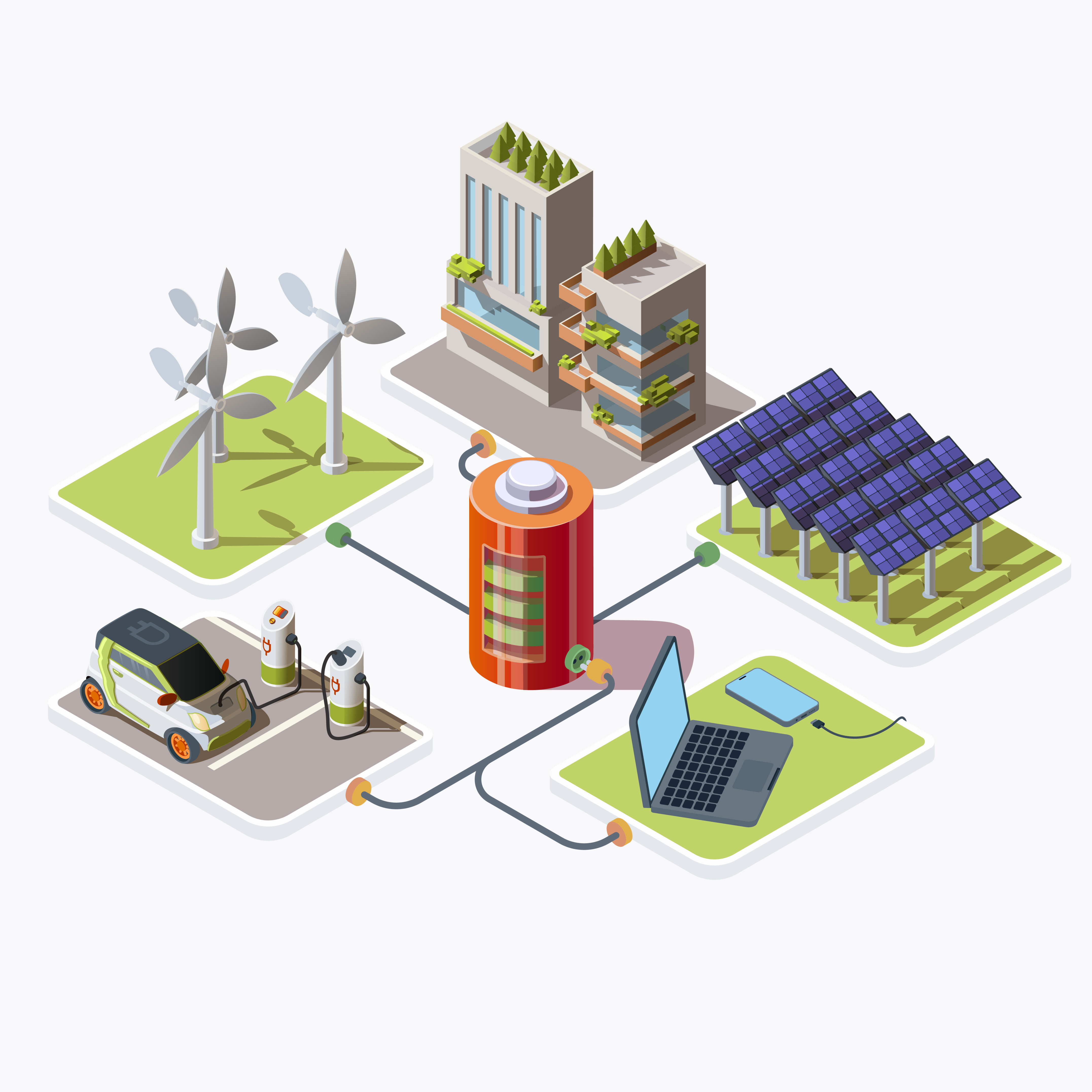Table of Contents
ToggleIntroduction
Solar energy, simply put, is energy derived from the sun’s radiation. This abundant and renewable resource can be harnessed through various technologies, such as photovoltaic (PV) panels and solar thermal systems, to generate electricity or heat. Investing in solar energy offers numerous financial benefits, including reduced energy costs, increased property value, and access to government incentives and rebates. Additionally, solar energy provides long-term stability by mitigating the impact of fluctuating energy prices.
Understanding Solar Panel Economics
While the upfront cost of solar panels can be significant, advancements in technology and economies of scale have led to a steady decline in prices over the years. Additionally, the long-term savings generated by solar energy typically far outweigh the initial investment. One of the most compelling aspects of solar energy investment is its potential for long-term savings. By generating your own electricity from sunlight, you can significantly reduce or even eliminate your reliance on grid-supplied power, thereby saving money on utility bills for decades to come.
Governments at the federal, state, and local levels often offer rebates, tax credits, and other financial incentives to encourage the adoption of solar energy. These incentives can significantly reduce the upfront costs of solar installations and accelerate the payback period for investors. One of the most substantial financial incentives for solar investments is the federal investment tax credit (ITC), which allows eligible taxpayers to deduct a percentage of the cost of installing a solar energy system from their federal taxes. State and local tax credits may also be available, further enhancing the financial benefits of solar investment.
By generating electricity onsite from sunlight, solar energy systems can offset or even eliminate the need to purchase electricity from the grid. This can result in substantial savings on monthly energy bills, especially in regions with high electricity rates or abundant sunlight. The amount of money saved on monthly energy bills depends on factors such as the size of the solar energy system, local electricity rates, and the amount of sunlight available. However, homeowners and businesses can typically expect to see significant reductions in their energy bills after installing solar panels.
Solar Energy Storage Solutions
Battery storage systems allow solar energy system owners to store excess energy generated during the day for use at night or during periods of low sunlight. This enables consumers to maximize self-consumption of solar energy and reduce their dependence on the grid, increasing energy independence and resilience. By coupling solar energy systems with battery storage solutions, consumers can maximize their self-consumption of solar energy and minimize their reliance on grid-supplied electricity. This not only reduces energy costs but also provides backup power during grid outages, enhancing overall energy reliability.
Solar energy systems produce electricity without emitting greenhouse gases or other harmful pollutants, making them a clean and environmentally friendly alternative to fossil fuels. By calculating the carbon footprint reduction associated with solar installations, investors can quantify the environmental benefits of their investments.In addition to reducing carbon emissions, solar energy helps conserve water resources, reduce air pollution, and mitigate the negative impacts of climate change. Investing in solar energy not only yields financial benefits but also contributes to a cleaner, healthier planet for future generations.
Renewable energy credits (RECs) represent the environmental attributes of one megawatt-hour (MWh) of electricity generated from renewable sources, such as solar, wind, or hydro power. Investors can buy and sell RECs to demonstrate their support for renewable energy and meet sustainability goals. Investors can generate additional revenue from RECs by selling them to utilities, businesses, or other entities seeking to offset their carbon emissions or meet renewable energy targets. The revenue generated from RECs can help offset the upfront costs of solar installations and improve the overall financial returns.
Job Creation and Economic Growth
The solar industry has emerged as a significant source of employment and economic growth, creating jobs in manufacturing, installation, maintenance, and related sectors. Investing in solar energy not only helps create new jobs but also stimulates local economies and drives innovation in clean energy technologies. In addition to job creation, solar investments contribute to economic development by attracting private investment, reducing energy costs for businesses and households, and fostering a more resilient and sustainable energy infrastructure. The economic benefits of solar investments extend beyond financial returns, encompassing broader social and environmental impacts.
Off-grid solar solutions provide reliable and cost-effective electricity to remote or isolated locations that are not connected to the traditional utility grid. These systems typically combine solar panels with battery storage and backup generators to ensure uninterrupted power supply, even in the most remote environments.Investing in off-grid solar solutions can yield significant financial advantages for remote properties, including reduced reliance on expensive diesel generators, lower operating costs, and increased energy independence. Additionally, off-grid solar systems can help mitigate the environmental impact of remote energy generation and improve overall sustainability.
Solar energy systems equipped with battery storage can provide backup power during grid outages, ensuring uninterrupted electricity supply for critical loads such as refrigeration, lighting, and communication systems. By investing in solar energy, consumers can enhance their resilience against power outages and minimize disruptions to daily life. Power outages can have significant economic and social impacts, disrupting business operations, compromising safety and security, and causing financial losses for homeowners and businesses. By investing in solar energy and battery storage, consumers can avoid downtime and losses associated with grid outages, providing peace of mind and financial security.
Solar Energy and Economic Development
Solar energy projects stimulate economic development by creating jobs, generating tax revenue, attracting private investment, and fostering innovation and entrepreneurship. These projects also contribute to local supply chains, support small businesses, and enhance the competitiveness and resilience of regional economies.
Solar energy projects create jobs across the entire value chain, including manufacturing, installation, operation, maintenance, and support services. These jobs provide stable employment opportunities, good wages, and career advancement pathways for workers of all skill levels, contributing to broader economic prosperity and social well-being. Solar energy offers significant economic benefits for developing nations, including improved energy access, reduced reliance on expensive and unreliable fossil fuels, and enhanced energy security and resilience. By investing in solar energy, developing countries can stimulate economic growth, create jobs, and improve living standards for their citizens.
Expanding access to solar energy in developing countries requires significant investment in infrastructure, technology, and capacity building. International organizations, governments, and private sector investors can play a crucial role in mobilizing capital and resources to support solar energy projects in developing countries, unlocking economic opportunities and driving sustainable development worldwide.
Financing Solar Energy Projects
Solar energy projects offer attractive investment opportunities for institutional investors, private equity firms, infrastructure funds, and other financial institutions seeking stable, long-term returns. These projects typically involve financing large-scale solar installations, such as utility-scale solar farms, commercial solar rooftops, and community solar projects. Financing large-scale solar energy projects requires innovative financial mechanisms, such as project finance, tax equity financing, and green bonds, to address the unique risks and challenges associated with renewable energy investments. These financing structures enable investors to deploy capital efficiently and effectively, maximizing returns while mitigating risks.
Evaluating the solar potential of a site is essential for determining its suitability for solar energy investment. Factors such as solar irradiance, shading, orientation, and available space must be carefully evaluated to ensure optimal energy production and financial performance. Assessing the financial viability of a solar energy investment involves conducting a comprehensive analysis of costs, benefits, risks, and returns over the project’s lifecycle. Investors must consider factors such as capital costs, operating expenses, revenue streams, tax implications, and financing terms to make informed investment decisions.
Many jurisdictions offer property tax exemptions or abatements for solar energy installations, reducing the financial burden on property owners and making solar investments more attractive. These incentives can significantly lower the overall cost of solar installations and improve the financial returns for investors. Property owners who invest in solar energy can enjoy numerous financial benefits, including increased property value, reduced energy costs, and eligibility for government incentives and rebates. Additionally, solar installations enhance the sustainability and attractiveness of properties, attracting tenants, customers, and investors.
Solar Energy for Multifamily Properties
Multifamily properties, such as apartment buildings and condominiums, present unique challenges and opportunities for solar energy investment. While shared solar installations can benefit multiple tenants and reduce overall energy costs, complex ownership structures and metering arrangements may complicate financing and implementation. Shared solar programs allow tenants in multifamily buildings to benefit from solar energy without installing panels on their individual units. These programs offer renters access to clean energy, reduced energy costs, and increased energy security, while landlords can improve property value, attract tenants, and comply with sustainability requirements.
Solar panels typically have a lifespan of 25 to 30 years or more, during which they continue to generate electricity with minimal degradation. Investing in high-quality solar panels with long warranties can maximize the financial returns and durability of solar energy systems, reducing maintenance costs and ensuring reliable performance over time. Solar panel warranties provide assurance against defects in materials and workmanship, as well as guaranteed performance levels over the warranty period. Investors should carefully review and compare warranty terms, including coverage duration, performance guarantees, and recourse options, to ensure adequate protection and peace of mind.
Solar energy and energy efficiency measures complement each other by reducing overall energy consumption and maximizing the financial and environmental benefits of clean energy investments. By implementing energy efficiency measures alongside solar installations, consumers can further reduce energy costs, increase system performance, and enhance sustainability. Combining solar energy with energy efficiency measures, such as insulation, weatherization, LED lighting, and smart thermostats, can significantly increase savings and return on investment. By optimizing energy use and generation, consumers can achieve greater energy independence, resilience, and affordability, while reducing their environmental footprint.
Conclusion
In conclusion, investing in solar energy offers a myriad of financial benefits, ranging from reduced energy costs and increased property value to access to government incentives and revenue from environmental markets. By harnessing the power of the sun, investors can achieve long-term savings, financial stability, and environmental sustainability, while driving economic growth and social progress. As solar technology continues to evolve and costs decline, the financial case for investing in solar energy has never been stronger. By seizing the opportunities presented by solar energy, investors can secure a brighter, more prosperous future for themselves and future generations.
FAQs
What is solar energy?
Solar energy is energy derived from the sun’s radiation. It can be harnessed through various technologies, such as photovoltaic (PV) panels and solar thermal systems, to generate electricity or heat.
Why should I invest in solar energy?
Investing in solar energy offers numerous financial benefits, including reduced energy costs, increased property value, access to government incentives, and long-term stability against rising energy prices.
How do I calculate the return on investment (ROI) for a solar installation?
Calculating the ROI of a solar installation involves estimating the total upfront costs and comparing them to the projected savings over the system’s lifespan. Factors such as energy production capacity, local incentives, and financing options should be considered.
What financial incentives are available for solar investments?
Governments offer various incentives, such as rebates, tax credits, and grants, to encourage solar energy adoption. These incentives can significantly reduce the upfront costs and improve the financial returns of solar investments.
Will investing in solar energy reduce my energy bills?
Yes, solar energy systems generate electricity from sunlight, offsetting or even eliminating the need to purchase electricity from the grid. This can result in significant savings on monthly energy bills, especially in regions with high electricity rates.







